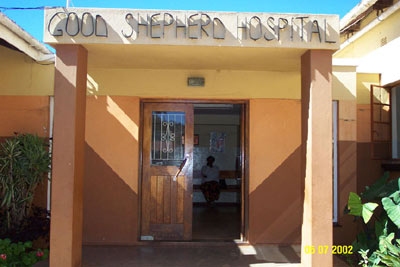Over the past 6 weeks, I have tried to tell you of some of the many challenges I face here in Swaziland.
One of those challenges has been trying to understand the culture which is unlike anything I have witnessed in Australia.
I try to speak a little bit of SiSwati. I can greet people and ask them how they are feeling. The people here understand me and they then start rambling on in SiSwati and I have to stop them because I don’t understand any further! I also know a few clinical words. Most of my communication is through an interpreter or through “sign language” for which I have become quite infamous for around here.
The actual cultural background of my patients is a whole new area that I struggle with on a daily basis. My holistic approach to patient care means that I try to find out their background and formulate a management plan around it. A simply impossible task at times.
I will give you an example of one of my most recent challenges.
I had a young girl on my ward who was in her third trimester of pregnancy. She had AIDS and she was admitted onto my ward with meningitis. Initially, she responded well to the antibiotics but then she deteriorated markedly. I finished my ward round on Monday knowing that I would not see her the following day.
I went to outpatients and started seeing some of the hundreds of patients waiting. The situation was simply chaotic. I was trying to see patients there and the nurses in the emergency room were asking me to see patients there and I was being pulled in all directions. I was visibly stressed out.
Then one of the nurses from the ward arrived. She informed me that my pregnant patient with meningitis had just died. She then proceeded to tell me that the relatives were asking what I was going to do with the unborn baby. I looked at the nurse and said to her with some incredulity “Did you tell the relatives that the baby has also died too? A baby cannot be alive in a dead mother”
The nurse told me that they understood the baby was dead but they were wanting to know if I was going to remove the baby. By this stage I was really frustrated and confused and in an exasperated tone I said “Tell the family that I do not remove dead babies from dead mothers!”
If I hadn’t been so stressed out, I probably would have dealt with the situation in a more sensitive manner, but by this stage I was at my “melting point”. I went home that night and felt dreadful about what had transpired.
I went to the nurse the next morning and apologised for not handling the situation more appropriately. I explained that I honestly had no idea what she was talking about.
She then went on to tell me that it is Swazi culture not to bury unborn babies with their mothers. They need to be buried separately. I simply had no idea about this, but the nurse reassured me that this is not a subject that is openly spoken about. It is one of Swazi’s “taboo” subjects and the family probably would not have felt comfortable talking to me about it anyway. Apparently, the mortician removes the baby at the funeral home and the two bodies are then buried separately. I guess in some cases, this is done by doctors. I can assure you, this procedure will not be performed by this doctor.
Despite any misgivings I may have about this, it is something that I just need to accept and hopefully next time will be a little more sensitive about. Everyday I learn something new about Swaziland but I also learn something about myself.
Wednesday, September 24, 2008
Culture and confusion
Posted by TropicalER at 3:11 AM
Subscribe to:
Post Comments (Atom)


2 comments:
hANG IN THERE mEL ...
Doc, I am an Irish Development Worker in Manzini, I have the misfortune to know of a few other Ozzies in the country, (in fact one has just moved to Siteki). We have and are facing the same challenges that you are going through. Everyone deals with it in their own way but sometimes its good to just to let your hair down. There will be a dinner for a few of us in pretty soon, if you are interested my cell no is 6540647
Stephen
Post a Comment